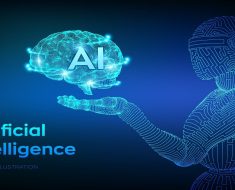One thing I’d never have imagined a couple of years back is that AI will beat real university students.
But it’s happening!
The rapid evolution of artificial intelligence (AI) has created ripples across various sectors, including education.
Recently, studies have shown that AI can outperform real students in university exams, raising questions about the integrity of academic assessments and the future of education.
In this article, you’ll get all the tea on the findings of these studies, the implications for the educational sector, and the potential ways forward.
AI Outperforms Real Students: The University of Reading Study
A groundbreaking study by the University of Reading demonstrated that AI-generated answers in undergraduate psychology exams consistently outperformed those from actual students.
Researchers created 33 fictitious student profiles and used ChatGPT, an AI tool, to generate responses for module exams. The results were startling: AI-written essays scored, on average, half a grade higher than human submissions.
Key Findings:
- AI Essays Nearly Undetectable: 94% of AI-generated essays raised no suspicions among markers, highlighting the sophistication of AI in mimicking human writing styles.
- Better Grades with AI: The AI students’ results were, on average, half a grade boundary higher than those of their real-life counterparts.
- Abstract Reasoning: AI struggled with more complex, third-year exams requiring abstract reasoning, where human students performed better.
These findings, published in the journal PLOS ONE, indicate that AI can beat real university students. But more importantly, it also shows that AI could potentially allow students to cheat undetected. Thus, compromising the fairness of academic assessments.
The Implications for Educational Integrity
The ability of AI to produce high-quality, undetectable essays poses a significant challenge to the integrity of educational assessments.
Associate Prof Peter Scarfe and Prof Etienne Roesch, who led the study, emphasized the need for educators to rethink their assessment strategies. Dr. Scarfe noted that many institutions have moved away from traditional exams to promote inclusivity, but AI’s potential to undermine these assessments calls for urgent action.
Broader Concerns:
- Shift in Assessment Methods: The study suggests a potential need to revert to traditional, in-person exams or develop new methods to ensure the authenticity of student work.
- Global Educational Impact: The findings serve as a wake-up call for educators worldwide to address the evolving role of AI in education and its implications for assessment fairness.
ChatGPT and Its Educational Implications
ChatGPT, developed by OpenAI, has rapidly evolved since its inception. Initially designed as a conversational AI, it has now demonstrated capabilities beyond simple dialogue.
With each iteration, from GPT-2 to GPT-4, the model has become increasingly sophisticated, producing human-like text that can easily pass for genuine student work. And guess what? ChatGPT 5 is on the way!
The Role of AI in Education
AI’s growing influence in education is a double-edged sword. While it offers numerous benefits, such as personalized learning and efficient grading, it also poses significant risks. The University of Reading study highlights the potential for AI to be misused by students to gain unfair advantages.
Ensuring Fairness in Assessments
To mitigate these risks, educational institutions must adopt new strategies to ensure the fairness and integrity of assessments. This could include:
- Enhanced AI Detection Tools: Developing more sophisticated tools to detect AI-generated content.
- Randomized In-Person Exams: Implementing randomized in-person exams to complement online assessments, just like Glasgow University did in February.
- Ethical AI Usage Policies: Establishing clear policies on the ethical use of AI in academic work.
The Bottom Line
So, AI can beat real university students? Absolutely!
The emergence of AI as a powerful tool in academia highlights both opportunities and challenges. While AI can enhance learning and provide valuable insights, it also poses risks to the integrity of educational assessments.
As AI continues to evolve, educators and institutions must adapt to ensure fairness and authenticity in academic evaluations. The journey of AI in education is just beginning, and its future impact will depend on how effectively we navigate these challenges.
FAQs
1. Can you use AI in university?
Yes, AI can be used in universities for various purposes, such as personalized learning, tutoring, and automating administrative tasks.
2. Can AI help me study?
Yes, AI can help you study by providing personalized learning plans, tutoring, and offering practice tests and study materials.
3. What are the disadvantages of AI in education?
The disadvantages of AI in education include the potential loss of human touch, privacy concerns, reliance on technology, and the risk of cheating.
4. Is AI good for students?
Yes, AI can be beneficial for students by offering personalized learning experiences, providing instant feedback, and helping with study materials. However, it should be used responsibly to avoid over-reliance.

![08] Data Encoding In Machine Learning: Different Data Encodings: OneHotEncoding()…](https://aigumbo.com/wp-content/themes/sociallyviral/images/nothumb-sociallyviral_related.png)
![[iOS] Python, Coding, Code – Codehub – Free Lifetime (Was US$119.99) @ Apple App Store [iOS] Python, Coding, Code – Codehub – Free Lifetime (Was US$119.99) @ Apple App Store](https://aigumbo.com/wp-content/uploads/2024/01/826628l-235x190.jpg)
